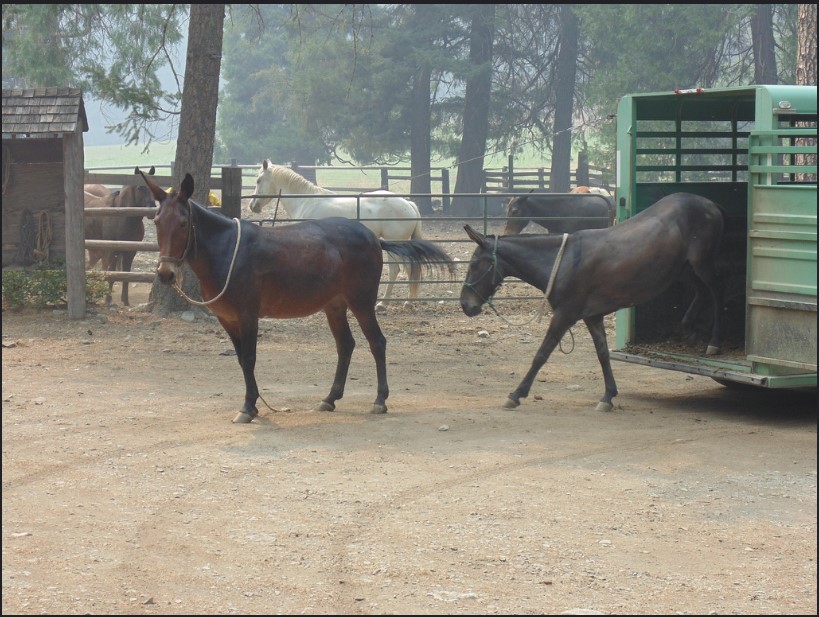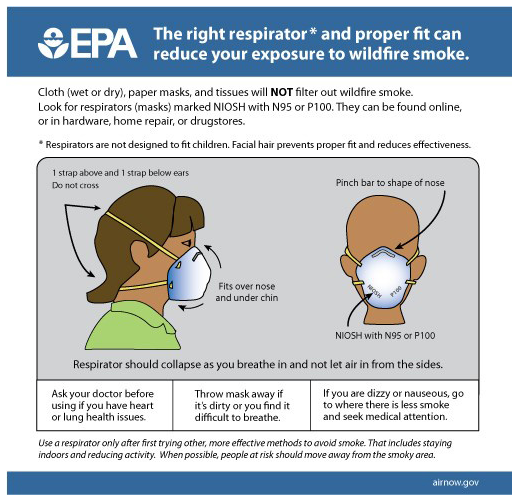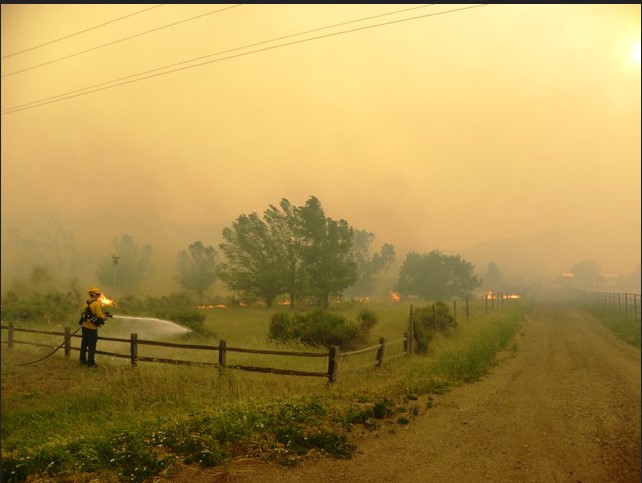
Wildfires can produce a lot of smoke. The biggest health threat from smoke is from fine particles, or particle pollution. These microscopic particles can penetrate deep into your lungs. They can cause a range of health problems, from burning eyes and a runny nose to aggravated chronic heart and lung diseases. Exposure to particle pollution is even linked to premature death. While not everyone has the same sensitivity to smoke, it’s still a good idea to avoid breathing smoke if you can help it. And when smoke is heavy, such as can occur near to a wildfire, it’s bad for everyone.
That’s why it is important to be ready for fire season, which occurs during the warmer, drier months of the year. If you live in an area where the wildfire risk is high, take steps now to prepare. Even if you don’t, smoke can travel to locations far away from fires so it is good to be aware of ways you could reduce smoke exposure, if necessary. Being prepared is especially important for the health of children, older adults, and people with heart or lung disease.
Some preparations to consider:

If you have heart or lung disease, check with your doctor about what you should do during smoke events. Have a plan to manage your condition.
Know how you will get alerts and health warnings, including air quality reports, public service announcements (PSAs), and social media warning you about high fire risk or an active fire.
Stay indoors if it’s smoky - it’s the best way to reduce your exposure.
Stock up so you don’t have to go out when it’s smoky. Have several days of medications on hand. Buy groceries that do not need to be refrigerated or cooked because cooking can add to indoor air pollution.
Ask an air conditioning professional what kind of high efficiency filters to use in your home’s system and how to close the fresh-air intake if your central air system or room air conditioner has one.

Create a “clean room” in your home. Choose a room with no fireplace and as few windows and doors as possible, such as a bedroom. Use a portable air cleaner in the room.
Buy a portable air cleaner before there is a smoke event. Make sure it has high efficiency HEPA filters and it is the right size for the room.
Have a supply of N95 respirators and learn how to use them. They are sold at many home improvement stores and online.
Organize your important items ahead of time, including financial and personal documents. Make sure to consider where your pets will go if you need to evacuate.
People who manage large fires also develop detailed smoke forecasts to help you be safe. Learn more at: Wildfires and Smoke - Helping Communities Understand and Respond to Air Quality Impacts.